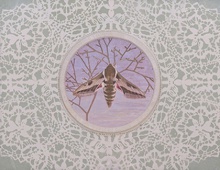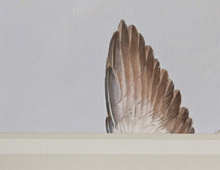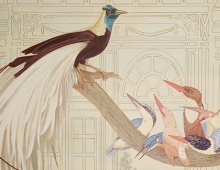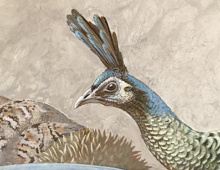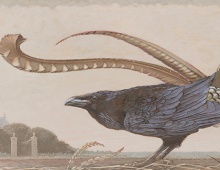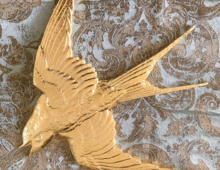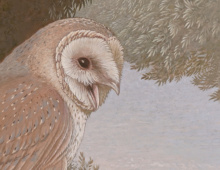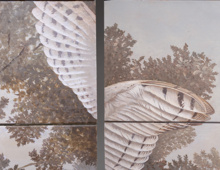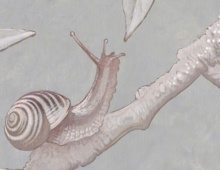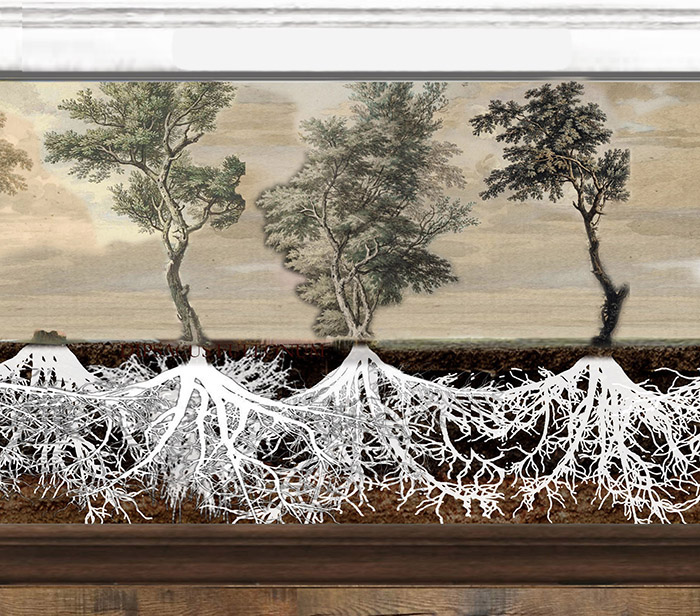
.
Designs for five new painted rooms at the entrance building of Nyenrode Business University.
A collaboration with Wevers & van Luipen Architects.
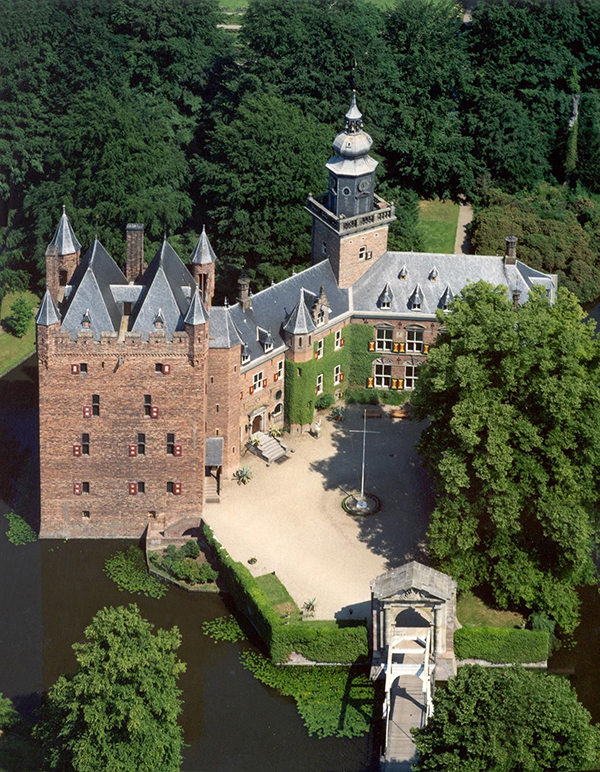
.
.
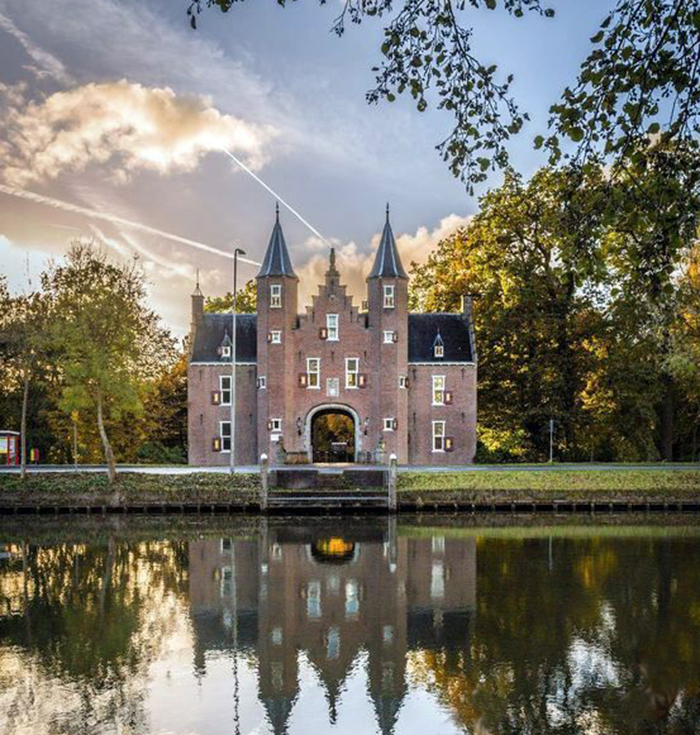
built in 1915.
.
Studies for a Hortus Conclusus.
Designs for five new painted rooms at the entrance building of Nyenrode Business University.
A collaboration with Wevers & van Luipen Architects.
Built in the 1910’s as neo renaissance styled landmark along the banks of the river “Vecht”, the “Gate” of Nijenrode Castle was to serve as entrance to this 650 year old country retreat with its extensive formal gardens and surrounding woodlands, while also providing a family home for the care-taker at the estate.
Today it leads to the Campus of Nyenrode University.
After exterior restoration works were finished in 2021, plans were drawn for a conversion and refurbishment of the interior to enable future student selection and admittance procedures, grant applications and all meetings and talks that come with it, to be transferred to this building.
Selection at the gate / Selection in the gate
Aim was to create a new interior more in consistency with the illusion of age suggested by the buildings outside appearance. Interiors that would reflect a feeling of tradition, a line of descent. and historical responsibility, making the admission procedure into a strong and lasting experience, imprinting the university not only as a place of excellence and ambition but also one of inner growth and self reflection. Hopefully leading to alumni with a strong sense of responsible leadership, stewardship and sustainability.
An ambition that seemed to suggest a call for a shift in mentality of the student population.
Korver was invited to design a series of murals and ceilings for the five new rooms that were to be created in the entrance building
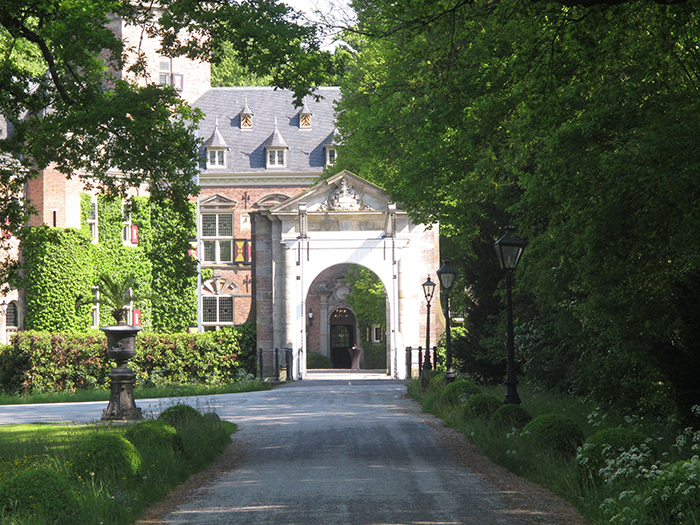
.
After entering the university campus yet another, older “gate” can be found, directly in front of Nijenrode Castle. A lime stone structure in Italian renaissance style, with two Latin mottos carved over the arch on each side.
Korver decided to use these motto’s as point of departure for his new paintings.
In a similar fashion both of Nyenrode’s mottos will be introduced in the new rooms of the Entrance building... included in a series of painting sequels that can serve as conversation-pieces during the talks of the admission procedure.
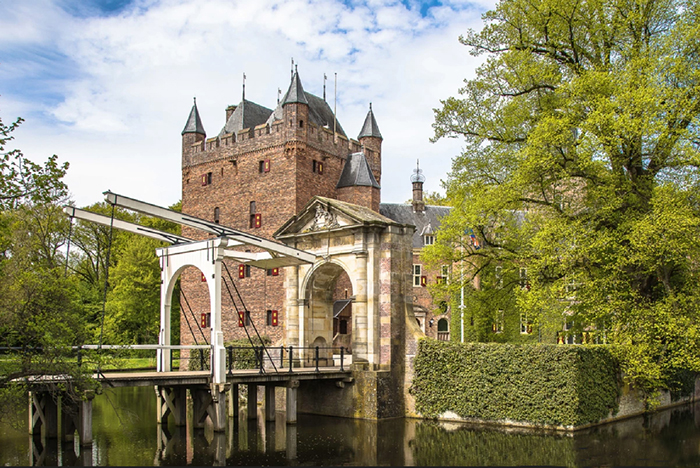
.
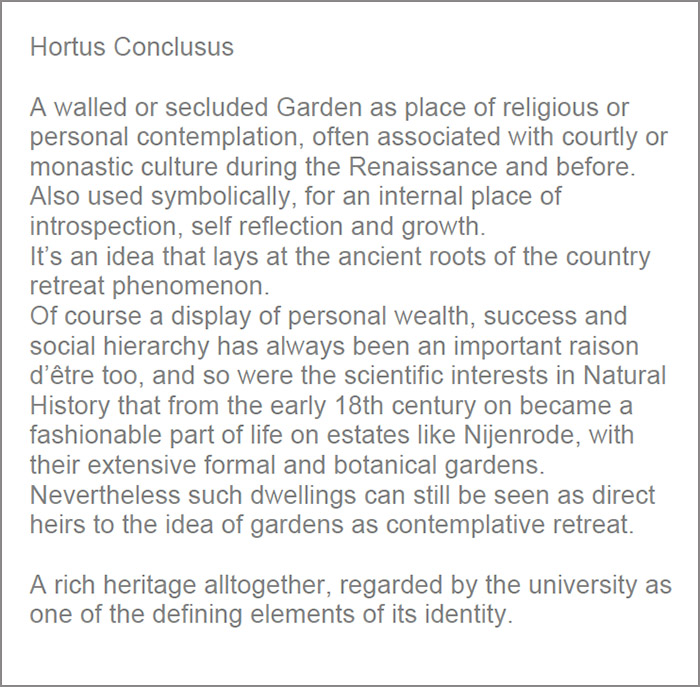
.
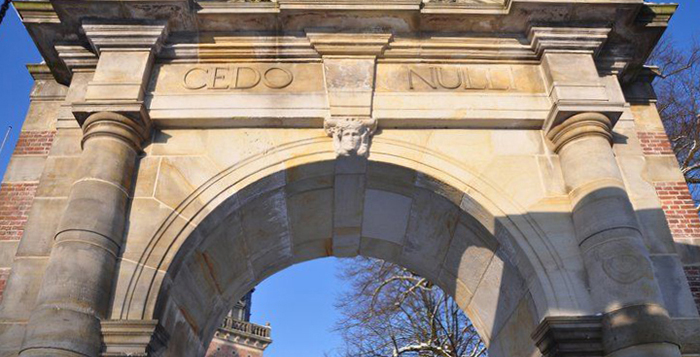
.
Cedo Nulli - I cede to no one
At first sight this motto seems to reflect a sense of competitive ambition and excellence, seasoned with some assumptions of the privilege so easily associated with an elite institute like this alma-mater to countless leaders in business and government. Its original intention however was a different one, as the personal motto of Erasmus of Rotterdam, the great 16th c. humanist thinker for whom it reflected a “memento mori”, it calls for a life of modesty, service and stewardship.
The way “Cedo Nulli” appears today slightly detached from its original meaning, reminds a bit of Charles Darwins “Survival of the Fittest”. A biological concept of enormous richness and magnitude, too often light heartedly quoted in a impoverished version úsed as metaphor providing fashionable economic theories with a fact-of-life like aura.
Concepts, Metaphors and Mottos can be limited in their room to resonate through certain views on life and, in this case, a very selective look on Biology. . . It was for instance not a book like Lynn Margulis’ “Symbiotic Planet” that turned up among the most widely read and influential popular biology science writings during the recent “neo liberal” decades. Richard Dawkins’ “Selfish Gene” was, with over a million copies sold.
But maybe the opposite is also possible, and biological imagery can bring a metaphor or motto back to where it can resonate in a much broader spectrum.
A gate before the gate
The new paintings at the entrance building will introduce the motto’s written on Nyenrodes arch in an earlier stage of entering, the stage of not yet being admitted as a student. It is an attempt to introduce them in a different context and a wider field of possible meanings and connotations.
Like a subtle viral infection in the foundations of thinking before being allowed to enter.
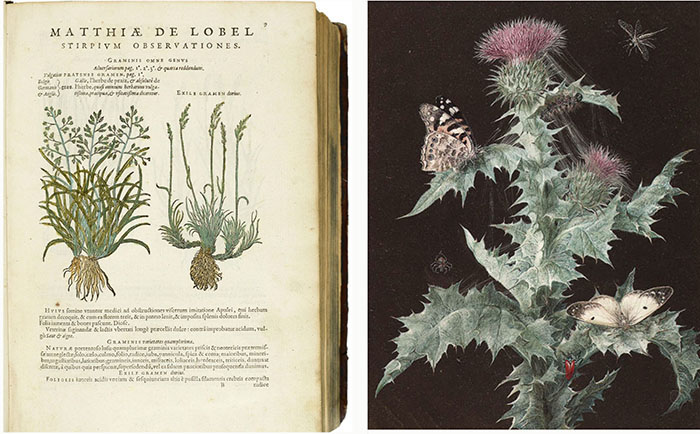
The Waiting Rooms
“Cedo Nulli” is introduced in the waiting rooms as an inscription on a trompe l’oeil painted wall of brickwork that seems to surround a garden. A Hortus Conclusus. The garden itself can not be seen, just a thin line of blue sky above it. But the image can just as easy be interpreted as situated in the walled garden itself, the blue sky being the outside world.
Whichever it is, plants are present, delicately painted against the dark back-drop of the wall at regular intervals, like ornamental vases on top of cabinets or boiseries, also bringing to mind the album plates of early renaissance “herb books”, depicting the contents of the first botanical gardens.
Each plant is accompanied by a small ecosystem of insects and invertebrates, and its scientific name carved in the boiserie below. These are no regular garden flowers however, but herbs, weeds. . . “humble” plants that manage to maintain themselves year after year, and despite rake and hoe, generation after generation in the sharp corner between wall and pavement.
Annual bluegrass, Milk thistle, Herb Robert, Wild Teasel, Greater Celandine.
Plants that in the end no wall is able to withstand.
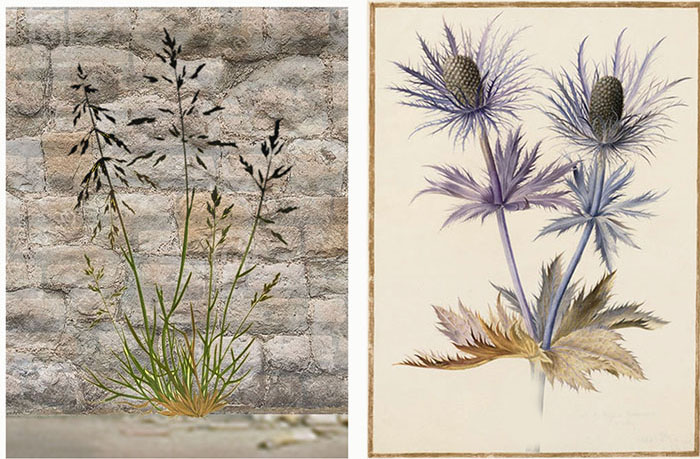
plants that manage to maintain themselves year after year, and despite rake and hoe, generation after generation in the sharp corner between wall and pavement
.
.
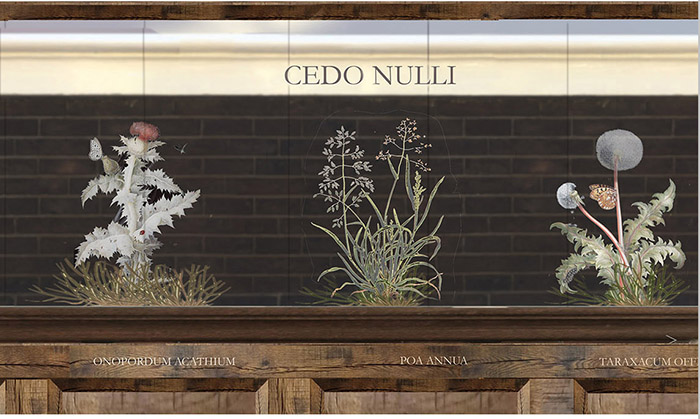
- Visual of the designed paintings -
.
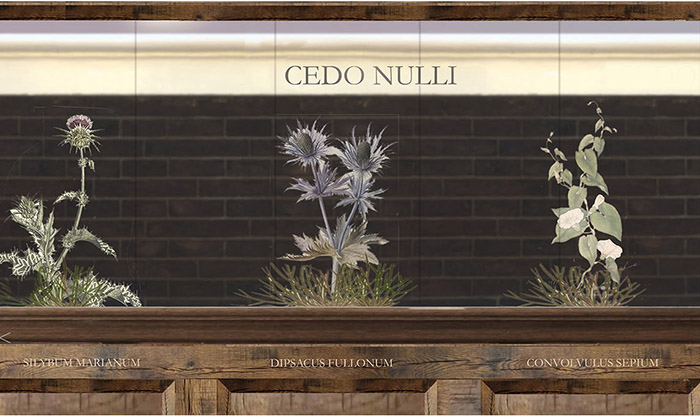
.
The garden itself can not be seen, just a thin line of blue sky above it.
But the image can just as easy be interpreted as situated in the walled garden itself, the blue sky being the outside world.
.
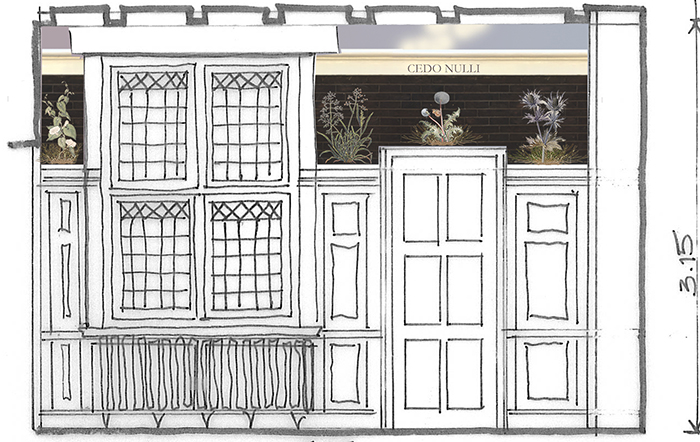
.
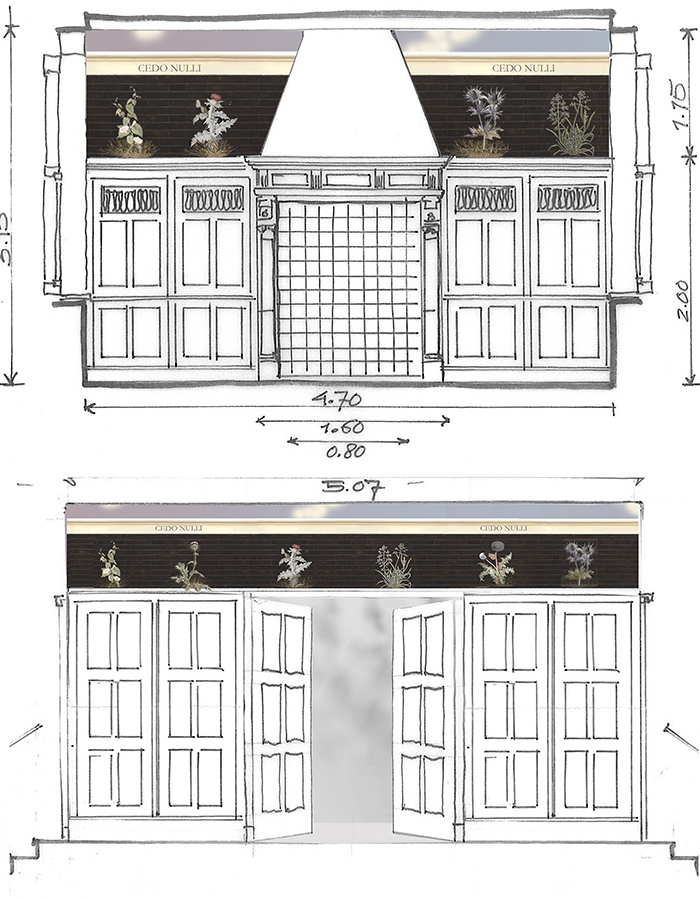
.
.
The Meeting and Interview Rooms
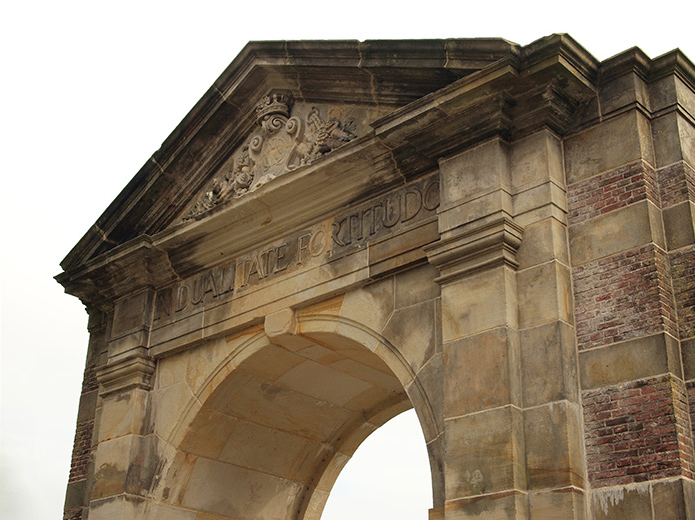
.
.
"In Dualitate Fortitudo"
the power of duality / two sidedness.
This second motto will be added to the new meeting and interview room paintings. Split landscapes, with the worlds under and above ground treated with equal attention. Individual trees in the top half are shown with their interconnected root systems below. Bright white patterns subtly bringing to mind the wide lace collars on 17th century Dutch regent portraits.
Where some may see in this the importance of extensive Ivy League style networking, others will see the interdependency of all living beings and some of the relative if not illusionary aspects of individuality and competitive success.
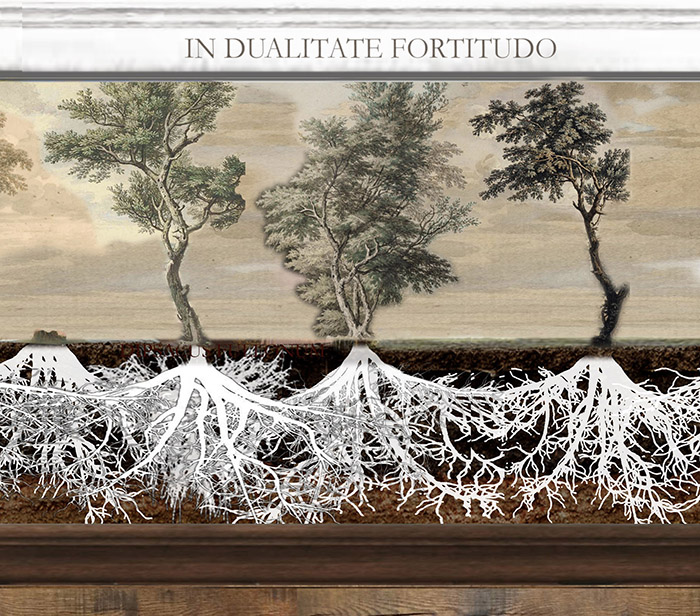
.- Visual impression of the designed paintings -
.
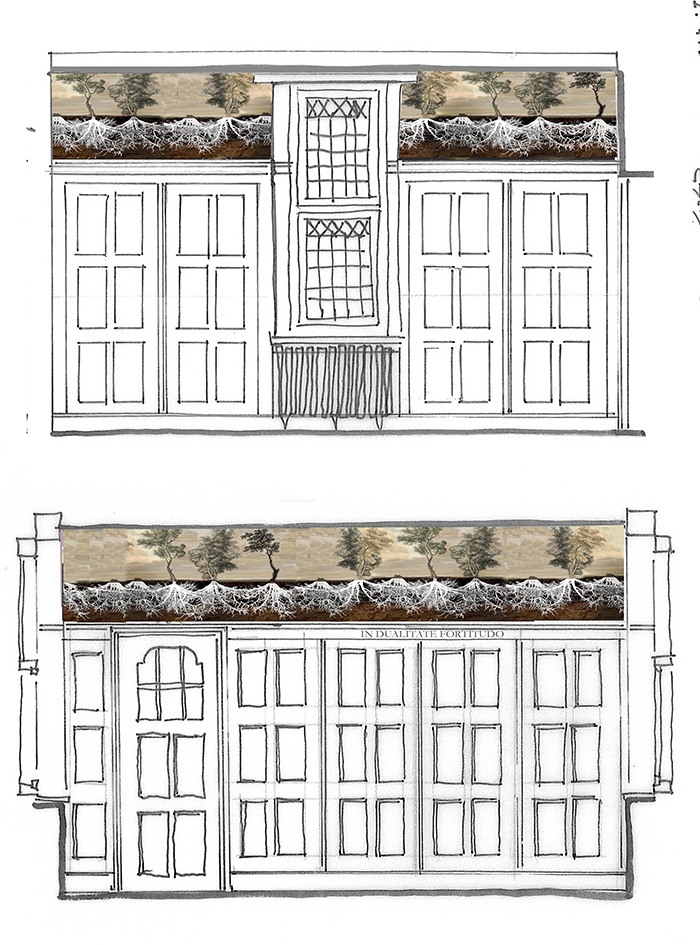
.
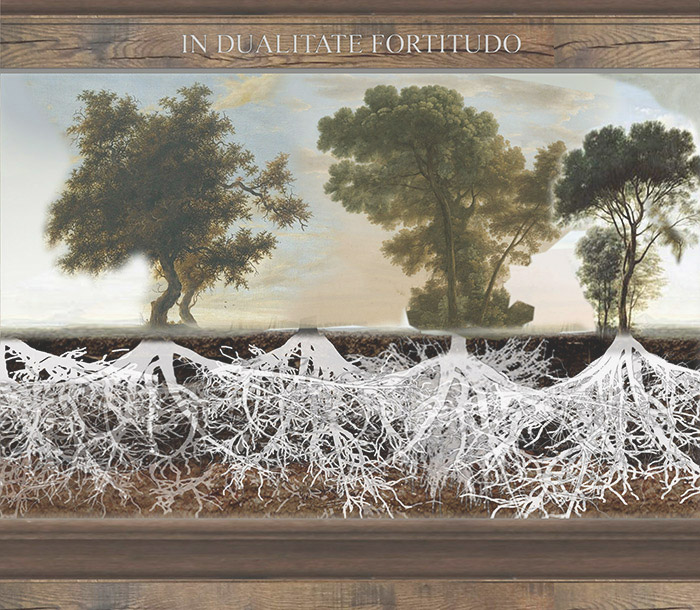
As we know now, both visions are true.
.
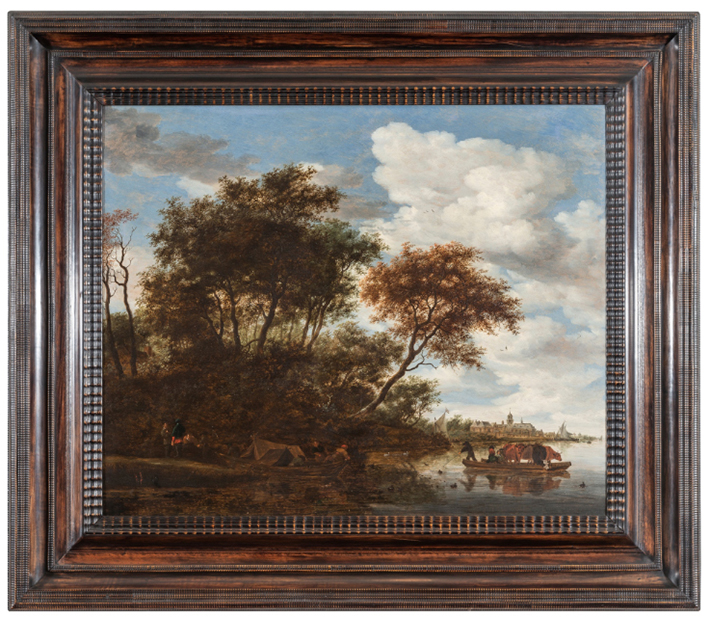
View on the river Vecht with Nijenrode castle
mid 17th century
.
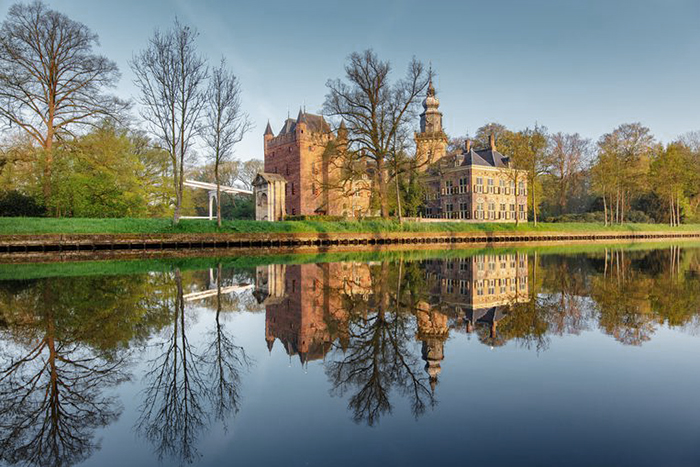
.


